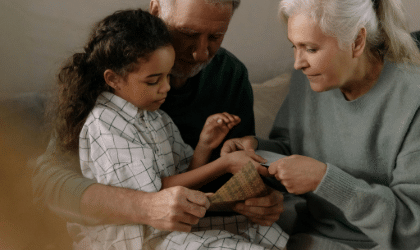It goes without saying that television is a key part of our culture; we turn to TV for news, political insight, education, weather updates, sporting or holiday events, and of course, entertainment. Namely, comedy.
Good comedy is an immediate mood boost. It’s a great way to decompress after a long day, and share a laugh with friends. Acknowledging that it is an essential part of our culture, however, doesn’t diminish the fact that specific brands of comedy may skew our perception of real-life situations, and the way that we view injuries.
Shows like America’s Funniest Home Videos are indeed entertaining; slap-stick humour has its place on our screens. However, using non-fictional instances of major accidents for humour undermines the consequences of real injuries and the way it could impact someone’s life.
The Dangers of Trivializing Injuries
America’s Funniest Home Videos features homemade videos sent by viewers. They spotlight comical situations or accidents, mishaps, and staged pranks. For those familiar with the show, or other shows similar to it, there’s no denying that they are entertaining. The situations showcased are so outrageous, so unexpected, that we can’t help but laugh.
But when you prod more deeply into what goes on during these homemade videos, and how they are presented to us as an audience, you may find yourself questioning the entertainment factor we as viewers so easily subscribe to.
If we get hurt in any possible way, we’re always told to see a medical professional. It’s common knowledge. But what happens when someone sustains an injury in an embarrassing way? If popular shows – like America’s Funniest Home Videos – are teaching us that accidents are laughing matters, this could influence our willingness to seek medical attention. Embarrassment is a strong, uncomfortable emotion; if we feel ashamed to admit our involvement in an accident due to fear of judgement, we could be undermining a very real injury.
At the end of the day, no one should feel embarrassed to ask for help or feel as though they have to brush off an injury in order to save face. And the problem with non-fictional comedy is that it creates a narrative that serious accidents are to be laughed at – when in fact, they are really not.
Undermining Long-Term Medical Consequences
There are many instances where an injury may seem minor at first. Accident victims may dismiss the injury, especially if they sustained the injury in an embarrassing manner. Or they may simply convince themselves that they don’t require medical attention for something that won’t be an issue in a few days.
But what happens when an injury doesn’t heal and instead does the reverse? Unfortunately, small injuries don’t always stay small. For this reason, it’s imperative to seek medical attention the day you note an injury or any type of pain following an accident. The last thing you want to do is ignore an injury that could cause future complications.
Furthermore, there are many hidden injuries that may not be immediately obvious. For example, an individual suffering from a sore neck after an accident may immediately dismiss the injury as a 48-hour problem. But in a few week’s time, they may begin struggling to turn their head. Or maybe they start to feel nauseous due to the excessive neck pain they feel with every movement of their upper body. These symptoms could point towards whiplash. They could also suggest a herniated disk, which can cause severe pain and loss of muscle control, and in some cases, even long-term disability. This is merely one example that emphasizes the importance of seeking medical attention immediately after an accident.
The days following an accident are a crucial time; don’t fall into the trap of downplaying an injury that could later spark long-term medical issues.
Delaying Your Personal Injury Claim
If you hesitate to report an accident for fear of being laughed at, you could be compromising the viability of your personal injury claim. If you get hurt at your workplace, for example, there may be surveillance footage that could be saved as evidence. But if you don’t speak up fast enough, you may risk that important footage being overwritten as time goes by.
The immediate action of reporting an accident is always beneficial because it provides you with documentation to support your proposition. Without this documentation, you could run into a “he said, she said,” situation. Evidence cannot be denied, but your word can.
Hesitation and inaction will almost always create setbacks in your personal injury claim. This is a process that thrives on immediacy, which is why it’s important to not allow embarrassment to deter you from speaking to someone and reporting your accident and injuries.
The Question of Causation
Causation is another factor that could potentially be compromised should you hesitate to report an accident that caused you harm.
In order to prove that a party is liable, you need to identify that they had a duty of care to the plaintiff, and that – through their actions or inactions during the accident – they breached that duty of care. Furthermore, it needs to be proven that this breach in duty is the reason the plaintiff sustained the injury they did, causing injuries or harm.
If the plaintiff, initially ashamed of the accident, waits a month to report it, it is far more difficult to verify the link between the accident and the injury. If a large chunk of time passes, who’s to say that the accident is the sole cause of the injury? What if the plaintiff sustained another injury in the time they waited on reporting the accident?
Inevitably, it becomes far more difficult to prove causation without a plaintiff taking that immediate action to report their accident.
Pranksters and Liability
Undermining accidents and consequent injuries is not only harmful to those who may sustain injuries, but also to those who may unknowingly inflict them.
Shows like America’s Funniest Home Videos present situations that are both accidental and planned. For those who watch these shows, and seek to recreate similar situations because they think it’s “funny,” they often don’t realize that they could be held liable for their actions.
Pranking someone is always a risk, no matter the context. If you prank someone who has pre-existing conditions, or has sustained past injuries, you could cause them serious harm. The fact that you didn’t know won’t matter – if you inflict harm unintentionally, you can still be held liable due to negligence. In fact, there is a specific law principle that addresses this very issue; coined the “thin skull” rule, it asserts that a party at fault for an accident cannot avoid responsibility just because the injured person has a pre-existing medical condition that potentially made them more vulnerable to injuries. While the party at fault isn’t responsible for their pre-existing condition, they are responsible should the accident result in additional harm.
Furthermore, if a prank results in emotional or psychological harm, you can still be held liable. An individual doesn’t need to be physically hurt in order to pursue a personal injury claim. If the incident has caused them harm or impairment that is impeding their everyday life in any manner, and can be verified by a medical professional, this aids the viability of their personal injury claim.
If a prank results in uncontrollable anxiety, that’s a viable claim. If a prank results in a fear of heights – especially for someone whose job may involve heights, like a construction worker – that’s also a viable claim. These impairments will directly impact the plaintiff’s everyday life, and their ability to live an overall fulfilling life, which gives the plaintiff reason to pursue damages.
The moral of the story? You don’t want to end up in court over a small prank that has large repercussions.
Individual Circumstances
What we all need to realize about shows like America’s Funniest Home Videos is that they don’t explicitly disclose the circumstances surrounding these incidents – we don’t know these people, what they do for a living, their physical abilities, or health conditions.
A slip and fall prank played on someone who has been trained how to fall via martial arts classes will play out differently compared to a slip and fall prank played on someone who is regularly inactive and has frail bones. How are we as viewers to understand these differing circumstances? A ten-second clip can only imply so much.
The Bottom Line
Relating the media’s portrayal of accidents to the real life repercussions of such accidents is problematic because it changes the way we view injuries. Minimizing trauma or harm is not okay because it continually reinforces dismissive ideas and behaviours surrounding incidents that could have serious negative repercussions.
Choosing to turn a blind eye towards trauma is a damaging mindset within our society that continues to paralyze those who are hurt and afraid to admit it. In order to properly hear, help, and treat those who are hurt, we must separate the media we consume from the reality we live.











